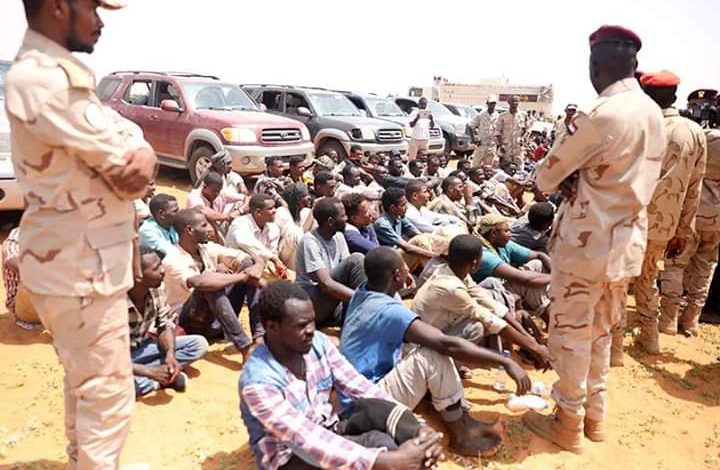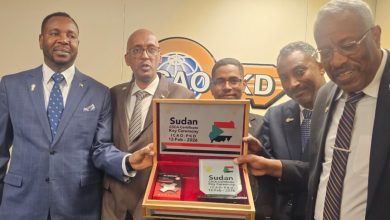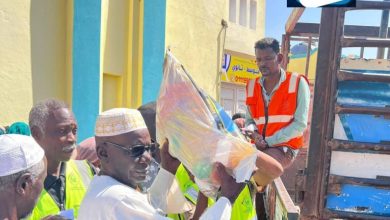Militia violations in the Al-jazirah.. Shocking stories and horrifying tales

On October 21st, East Al-Jazeera was set to witness one of the worst atrocities of modern times. The rebellious militia, in its frenzied revenge campaign, swept away life from everything that pulses—humans, animals, and plants. It turned the once bustling villages and towns of East Al-Jazeera into vast cemeteries, shrouded in silence, sorrow, and desolation.
Residents of around 200 villages and towns were displaced, fleeing from the Janjaweed militia with many memories and all their sorrow, leaving behind everything they owned, filled with pain and grief in their new homes.
Knife confrontation:
In the midst of this chaos, Haj Abdullah Mohamed Saleh, 75 years old, from the village of Al-Muhaydat Um Bili, 18 kilometers north of Tamboul, took refuge in his home, holding onto some sheep, a donkey, and a cart—his only possessions. He refused to leave them for the thugs and to abandon his home. A few young men from his family stayed with him after their pleas for him to leave the village, which everyone else had abandoned, fell on deaf ears.
Hajj Abdullah was a well-known knight, a man of duty, and a proud soul who would not accept humiliation. These qualities clashed with the savages of the Rapid Support Forces, who take pleasure in the humiliation of those who fall into their hands among the citizens.
Last Wednesday, a militia force arrived in the area of (Al-Muhaydat Um Bili) where Uncle Abdullah and about nine young men were present. The thugs stormed the village, house by house. When they reached Uncle Abdullah’s house, they found him with two young men. They ordered them to leave the village immediately after looting their phones. The two young men complied and were about to leave when the militia members were surprised to see the elderly man refusing to leave. One of them grabbed him by the chin and dragged him towards them. Abdullah pulled out his knife and stabbed one militia member in the heart and wounded another beside him before the thugs shot him dead on the spot. The two young men fled the village. They lost Uncle Abdullah, but they witnessed a heroic story of a man who refused to be humiliated and died defending his home after killing one mercenary and wounding another.
Sacrifice and pain:
About 35 kilometers away from where Hajj Abdullah was, specifically in the city of Rufa’a, Ismail and his wife, along with their two daughters, wrote another heroic saga as they faced armed militia members who stormed their home while they were preparing to leave the city.
Ismail’s brother, who arrived at the house after it was looted and the militia members had left, recounted that he found his brother lying on the ground, and his wife and eldest daughter were thrown on the ground behind the door, bleeding. Meanwhile, the youngest daughter, who is 18 years old, was still alive despite being shot. It was understood that they defended themselves with kitchen knives when they felt that the militia’s goal was to rape the two girls and not just steal. Their father died first while confronting the militia members with a kitchen knife, then their mother refused to surrender and hid behind the door with her eldest daughter. When they did not come out, the militia fired heavily, creating holes in the door, and the mother and her eldest daughter fell dead, while the youngest daughter was shot. Later, Ismail’s brother left the house alone because the youngest girl had died from her wounds.
Alone in the face of the militia:
In the beleaguered city of Tamboul, on October 22, the militia, after taking control of the city that evening, stormed the citizens’ homes in a frenzied campaign to seize as much loot as they could, according to their thinking. In the (Al-Aqda) neighborhood located west of the city, the young man Hassan Al-Omda was at home, refusing to leave. He knew with Sufi certainty that this might be his last night. He rejected all his family’s pleas, evacuated his family, and some of his comrades remained in their neighboring homes. He used cover and waited.
The militia, and they did not disappoint him. At seven-thirty in the evening, the mercenaries scaled the wall of his house and immediately exchanged gunfire with him. He had enough ammunition, a sniper rifle, and a Kalashnikov. He fought with them in a battle that lasted all night for a full ten hours. His neighbors say they kept hearing the exchange of gunfire throughout the night, and every time, the militia sent wave after wave, but they failed to enter the house or silence Hassan. At six in the morning, after he ran out of ammunition, the gunfire finally ceased. Later, the neighbors found Hassan Al-Omda lying on the ground, his body completely shattered by the ammunition, and they found traces of blood where the militia members had been stationed next to the wall.
Untold stories:
It is worth mentioning that many stories of violations have passed with the dead, and others have yet to be told. But with a single glance at the displacement camps in village (6) Arab in New Halfa, you find a woman crying for her husband, another crying for her son, and a child crying for her father. There, you hear stories of violations from eyewitnesses that no one has ever heard before, violations beyond imagination. Yet, from this ashes, a new nation will rise, translating these stories of violations into seasons of joy, and these violations will become tales that tell the story of people who defended their land and honor with all they had.
Quoted from “Sudanese Echoes”



